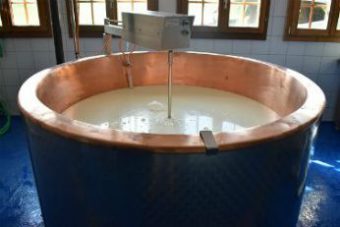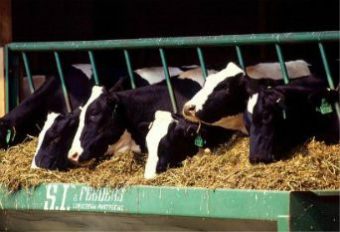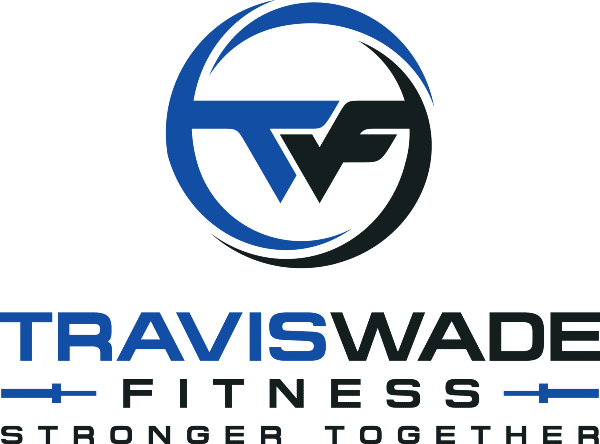Is Dairy Good For You?
Are Dairy Products Good For You?
These are the secrets of dairy products!

By TRAVIS WADE
I was talking to a nutritionist as I like to do because I will see eye to eye with them if they keep up to date with their information. Anyway, this nutritionist I was chatting with told me she was able to get rid of her asthma through diet. I thought that was awesome so I asked her how exactly she did it. Not shockingly, she explained that she eliminated dairy products and her asthma went away.
Dairy is a very common allergen that causes a lot of people various issues. Therefore, here are my top 10 reasons why dairy products cause issues for us. Afterward, feel free to contact me with any questions and comments below.
1. THE PROCESSING OF DAIRY PRODUCTS

Like all processed foods there is very little nutrition in dairy products. Unfortunately, almost all dairy is processed in some way unless you’re getting it straight from the animal. I am talking about homogenization… pasteurization… whatever the process might be.
For instance, pasteurization involves heating the product to a high enough temperature to kill the bacteria in the product. Regrettably, this also kills the enzymes including lactase and phosphatase. Firstly, lactase is the enzyme that metabolizes lactose which is the sugar in milk.
Secondly, phosphatase is the enzyme needed to absorb calcium. Sadly, processing dairy makes the calcium in dairy useless. Even worse, some dairy products will actually make you more deficient in calcium.
2. LACTOSE

This brings me to lactose. As mentioned, lactose is the sugar in dairy products. When you are a baby you produce plenty of lactase to digest the lactose but as you get older you produce less and less lactase; thus, making you more and more lactose intolerant. Do you know how intolerant you are to lactose?
3. CASEIN

Casein is a protein in dairy products. Unfavorably, about 20% of the population has some degree of intolerance to casein. When you ingest casein, you might not break out in a rash or hives but you likely will have inflammation and subsequent water retention with slowed metabolism that goes unnoticed. This inflammation is a burden on your body; so, maybe you will notice…
4. WHEY

Whey is the other protein in dairy products and it is usually a liquid but gets dehydrated and sold as a powdered protein supplement. A lot of people have some degree of food sensitivity to whey as well which also causes inflammation and an increase in disease and weight gain.
5. TOXINS
Lectin is a naturally occurring toxin found in plants. Unfortunately, this toxin breaks down the lining of the gut causing Leaky Gut Syndrome. A mycotoxin is a metabolite of mold and more specifically, it is the most powerful carcinogen we know of. The way it gets in dairy is the animal eats grains that have this toxin in it. Notably, the mycotoxin also gets in human breast milk this same way or by consuming other products that have mycotoxins such as dairy, coffee, commercially raised meat, or grains.

Some other harmful products found in dairy are preservatives, anti-inflammatories, natural hormones, anti-malaria drugs, steroid hormones, anti-fungal drugs, pesticides, and other things to enhance flavor like sweeteners. All of the issues I am mentioning increase the burden on the body.
6. HORMONE IMBALANCE

One of the hormones dairy products will offset is insulin. Unfortunately, dairy products increase insulin for an extended period. It is unfortunate because insulin stores energy in cells and in a lot of cases it will be storing the energy as fat in fat cells. Subsequently, this makes dairy a great weight gainer; not just because of all the inflammation dairy causes but also because of the hormone imbalance.
7. SKIN ISSUES

People that have skin issues also have gut issues. When people see a doctor about acne or other skin issues, the first thing a doctor might ask you to try is to give up dairy and other foods that cause gut problems and inflammation.
8. GLYPHOSATE

Most commercially raised animals will eat genetically modified products. Unfortunately, genetically modified grains are sprayed with Roundup and the active ingredient in Roundup is called glyphosate. This glyphosate is a great chelator which means it binds to minerals, therefore, it will also bind to your minerals and deplete you of minerals. If a cow eats glyphosate then it will be in the milk.
Inasmuch, glyphosate was originally trademarked as an antibiotic. Antibiotics kill the good bacteria of our gut and allow yeast and opportunistic bacteria to take over. The good bacteria of our gut is the most important part of our immune system. Glyphosate is a very powerful antibiotic which also breaks down our gut lining which leads to an exponential amount of issues.
9. ANIBIOTICS

Antibiotics and estrogen are normally given to cattle to fatten them up. In contrast, the reason dairy cows are given antibiotics is to treat mastitis. Mastitis is an inflammation of the mammary glands or udder and is usually caused by an infection. Infections are common and spread quickly when an animal is raised in a concentrated animal feeding operation (CAFO) so cows are often given antibiotics regularly to prevent infections.
10. CONCENTRATED ANIMAL FEEDING OPERATIONS

Unfortunately, a lot of dairy cows are now raised in CAFOs. Indeed, this isn’t just bad for the animal but bad for human consumption as well. Among other issues, CAFOs produce low nutrient animals with high toxin levels. See doctor Mercola’s infographic on concentrated animal feeding operations (CAFOs).
ARE THERE ANY DAIRY PRODUCTS THAT ARE GOOD FOR YOU?

If you got milk straight from the cow with nothing added to it and no processing and the cow wasn’t fed GMOs, antibiotics, hormones, or any other drugs then maybe the milk might not be harmful to some. For instance, if the cow was grass-fed with a clean diet and your body doesn’t react to casein, whey, or lactose you might be in luck. You would have to try it for yourself by eliminating all dairy for a month and see how you feel when you reintroduce it.
Fortunately for some people, yogurt and cheese don’t have lactose. Personally, I will sometimes get cheese if the ingredients list says “Unpasteurized milk, bacterial culture, salt.” In other words, the kind of cheese that I get is imported from Switzerland because I have seen what the cows eat in Switzerland and they eat lush grass on the side of a mountain.
Unpasteurized means it is made with raw milk. The bacterial culture eats all the lactose and the salt is for flavor. Luckily, my body doesn’t react to cheese.
I also make my own kefir and yogurt using an organic milk that is pasteurized at the lowest temperature allowed. I believe homemade yogurt and kefir are a staple to every diet due to the beneficial bacteria our gut will get from it.
The only other dairy product I use is grass-fed butter. If the butter is grass-fed it has CLA which is a weight loss supplement. It will also contain butyrate which feeds good gut bacteria and butter is a great source of healthy saturated fat you can use to cook with on high temperatures.
MY RECOMMENDATION
I recommend stopping all dairy products for a month and then reintroducing homemade kefir, homemade yogurt, and imported cheese that only has unpasteurized milk, salt, and bacterial culture for ingredients. You could also use grass-fed butter from New Zealand. Reintroduce one at a time.
If you react to kefir, yogurt, cheese, or butter it could be the whey or casein. In which case you may try ghee which is butter with the proteins and water removed. Essentially, just the saturated fat is left which is great for cooking at high temperatures. As long as it’s grass-fed it will have the CLA and butyrate.
Want To Get Started On A New Lifstyle Right Away?
Or
Would You Like A Plan To Achieve Your Fitness Goals?
Sign Up For Online Personal Training!


